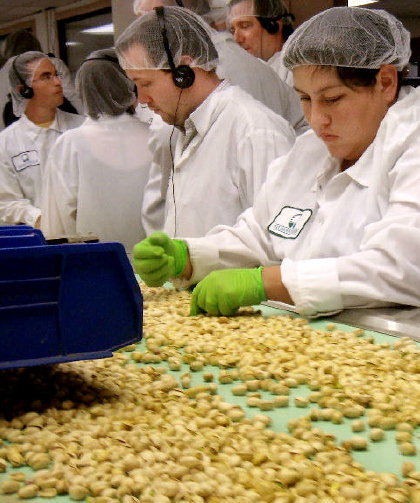Every time the U.S. Food and Drug Administration issues a public advisory about some food product, the armchair critics pounce.
 This time it’s pistachios. On March 30, FDA issued a blanket warning for folks not to eat pistachios or products containing pistachios until further details emerged. The nut industry went … nuts. Perishable Pundit Jim Prevor did his bit about how regulators and others could be sure the contamination went back to the pistachio plant. Several journalists asked me about the economic burden of such a recall, especially since there were no confirmed illnesses. I told CBS Radio that if industry wanted an economically prudent plan, industry should keep Salmonella out of pistachios.
This time it’s pistachios. On March 30, FDA issued a blanket warning for folks not to eat pistachios or products containing pistachios until further details emerged. The nut industry went … nuts. Perishable Pundit Jim Prevor did his bit about how regulators and others could be sure the contamination went back to the pistachio plant. Several journalists asked me about the economic burden of such a recall, especially since there were no confirmed illnesses. I told CBS Radio that if industry wanted an economically prudent plan, industry should keep Salmonella out of pistachios.
The other aspect is that, given the public and government scrutiny of FDA, there is probably something going on – something is not quite right at the farm or processing plant or wherever – for FDA to issue a blanket warning. FDA just doesn’t have all the details yet.
Here are some details:
Elizabeth Weise of USA Today is reporting this morning that Setton Pistachio, the company that recalled 2 million pounds of pistachios on Monday, had been receiving positive salmonella tests for as long as five months.
 David Acheson, FDA associate commissioner, said,
David Acheson, FDA associate commissioner, said,
"The question is, ‘Did Setton Farms have an ongoing problem, and what did they do about it?’ "
The FDA believes batches of pistachios that tested positive for salmonella were destroyed, not distributed. Setton Pistachio spokeswoman Fabia D’Arienzo could not confirm that.
Almond Princess Linda Harris, an expert on salmonella in nuts at the University of California-Davis, said,
"If I’m getting a positive (result) and a couple of months later another positive, and then another, I would think the appropriate response would be to say, ‘This is not right. I’ve got to figure this out.’ "
Kraft spokeswoman Susan Davison said Kraft sent an internal food-safety auditing team to Setton Farms’ Terra Bella plant on March 23 and,
"They saw the potential for cross-contamination" between raw and processed pistachios. “For example, often in companies different colored gloves are used for the raw area and the roasted area." However at the Setton plant, the same colored gloves were used in both areas.
